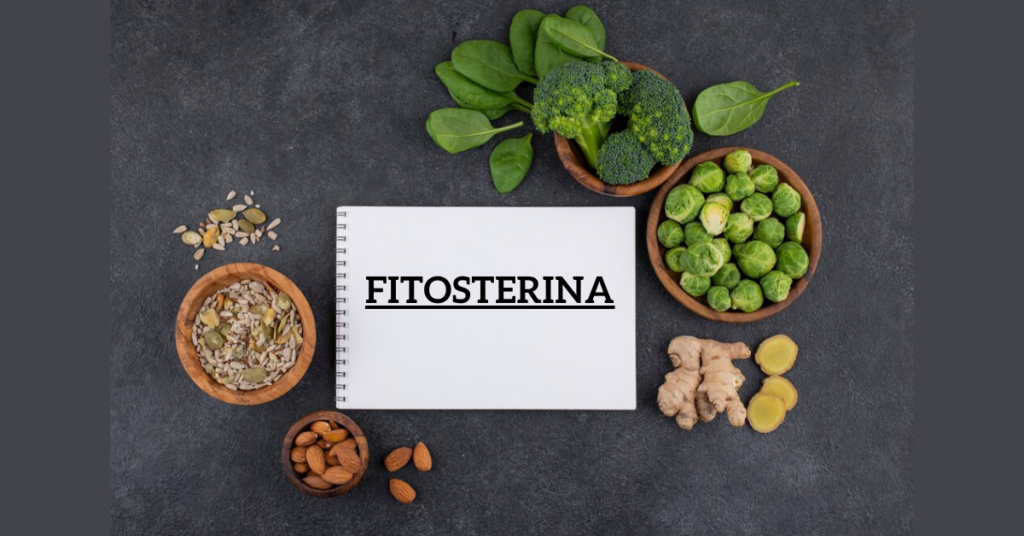In recent years, there has been a growing interest in natural compounds that offer a range of health benefits. One such compound that has gained attention is Fitosterina (Phytosterols), known for its potential in promoting overall well-being. In this article, we delve into what Fitosterina is, its types, sources, health benefits, and more.
Introduction to Fitosterina
Fitosterina, also known as Phytosterols, is a group of naturally occurring compounds found in plants. They are structurally similar to cholesterol and play vital roles in plant cell membranes. Fitosterina’s can be further categorized into various types, each with its unique properties and benefits.
Types of Fitosterina
- Beta-Sitosterol: This is the most abundant type of Fitosterina’s found in plants. It is commonly used in supplements due to its potential cholesterol-lowering effects.
- Campesterol: Another important type of Fitosterina, Campesterol, is found in various plant oils and seeds. It also contributes to the cholesterol-lowering properties of phytosterol supplements.
- Stigmasterol: This type of Fitosterin’a is often found in soybeans and other legumes. It has been studied for its potential anti-inflammatory and antioxidant properties.
- Brassicasterol: Found in brassica vegetables like broccoli and Brussels sprouts, Brassicasterol is known for its cholesterol-lowering effects and potential anti-cancer properties.
- Delta-5-Avenasterol: This Fitosterin’a is commonly found in oats and barley and is known for its cholesterol-lowering properties.
Sources of Fitosterina
Fitosterina is naturally present in various plant-based foods. Some of the richest sources include:
- Nuts and Seeds: Almonds, walnuts, sunflower seeds, and flaxseeds are rich in Fitosterin;a.
- Vegetable Oils: Olive oil, corn oil, and soybean oil contain significant amounts of Fitosterina.
- Whole Grains: Foods like whole wheat, barley, and oats are good sources of Fitosterina.
- Legumes: Beans, lentils, and peas also contain Fitosterin’a.
- Fruits and Vegetables: Avocado, spinach, and Brussels sprouts are examples of produce with notable Fitosterina content.
Health Benefits of Fitosterina
- Cholesterol Management: One of the most well-known benefits of Fitosterin;a is its ability to lower LDL (bad) cholesterol levels. By competing with cholesterol for absorption in the gut, Fitosterina helps reduce overall cholesterol levels, thereby supporting heart health.
- Anti-Inflammatory Properties: Some types of Fitosterina’s, such as Stigmasterol, have been studied for their potential anti-inflammatory effects. This makes Fitosterina-rich foods beneficial for individuals with inflammatory conditions like arthritis.
- Antioxidant Activity: Fitosterina exhibits antioxidant properties, which can help combat oxidative stress and reduce the risk of chronic diseases like cancer and cardiovascular disorders.
- Digestive Health: Fitosterina has been associated with promoting digestive health by supporting regular bowel movements and maintaining a healthy gut microbiota.
- Blood Sugar Regulation: There is evidence to suggest that Fitosterina may help improve insulin sensitivity and regulate blood sugar levels, making it beneficial for individuals with diabetes or at risk of developing diabetes.
- Prostate Health: Beta-Sitosterol, a type of Fitosterina’s, has been studied for its potential in supporting prostate health and reducing symptoms associated with benign prostatic hyperplasia (BPH).
Also Read: Mastering Infinite Power: Strategies To Dominate In Magic Survival
Fitosterina in Supplements
Due to its health benefits, Fitosterina is commonly used in dietary supplements. Phytosterol supplements are often recommended for individuals looking to manage cholesterol levels naturally. These supplements typically contain a combination of Fitosterin’a types, providing a concentrated dose of these plant compounds.
It’s important to note that while Fitosterin;a supplements can be beneficial, they should not replace a balanced diet rich in plant-based foods. Supplements are best used as part of a comprehensive approach to health, including regular exercise and a healthy lifestyle.
Safety and Considerations
Fitosterina is generally considered safe for most people when consumed in recommended amounts through food sources. However, individuals with certain medical conditions, such as sitosterolemia (a rare genetic condition affecting Fitosterin’a metabolism), should consult healthcare professionals before increasing Fitosterin;a intake significantly.
Moreover, excessive intake of Fitosterina’s supplements may lead to gastrointestinal issues or interfere with the absorption of fat-soluble vitamins. Therefore, it’s essential to follow dosage guidelines and seek professional advice when using Fitosterin;a supplements.
Conclusion
Fitosterina, or Phytosterols, is a group of plant compounds with significant health benefits. From cholesterol management to anti-inflammatory properties and antioxidant activity, Fitosterina’s plays a crucial role in promoting overall well-being. By incorporating Fitosterin’a-rich foods into your diet and considering supplements when necessary, you can harness the potential of these natural compounds to support your health goals.
In conclusion, Fitosterin’a offers a promising avenue for individuals seeking natural ways to enhance their health and well-being. As research continues to uncover the various benefits of Fitosterin;a, it reinforces the importance of a plant-rich diet for optimal health.







